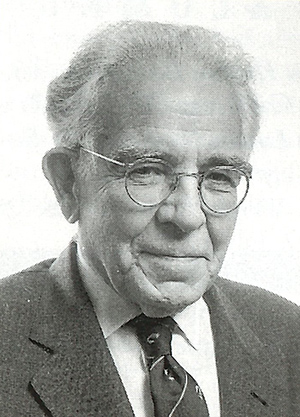Charles Horsky, ’31, left his mark on the other Washington
 Charles A. Horsky, ’31, a University of Washington debate team star who went on to become a presidential adviser and was instrumental in the creation of the Kennedy Center and other Washington, D.C., institutions, died Aug. 20 at Holy Cross Hospital in the nation’s capital. He was 87 and suffered from kidney failure.
Charles A. Horsky, ’31, a University of Washington debate team star who went on to become a presidential adviser and was instrumental in the creation of the Kennedy Center and other Washington, D.C., institutions, died Aug. 20 at Holy Cross Hospital in the nation’s capital. He was 87 and suffered from kidney failure.
As a lawyer, he was a prosecutor in the Nuremberg war crimes trials after World War II, argued landmark cases before the Supreme Court, helped oversee the Amtrak rail reorganization, and defended the rights of impoverished defendants. He also helped shape the home rule government of the city of Washington, D.C., and played a major role in creating that city’s Metro transportation system.
Born in Helena, Mont., where his father was a state district court judge, Horsky came to the University in 1927. He was a friendly, dedicated student who was a standout member of the men’s debate team, recalls Mary Wenhe, ’36, a former classmate and member of the women’s debate team at the time.
After graduating from the UW, he went to Harvard Law School, where he finished at the top of his class. He joined the law firm of Covington & Burling in 1939 and served as an assistant prosecutor for the Nuremberg war crimes trials. In the corporate law arena, he worked on the regional rail reorganization that resulted in Amtrak and Conrail. He handled landmark civil rights cases as well, including the Supreme Court appeal of a California man of Japanese ancestry who had refused to relocate voluntarily to an internment camp during World War II. Horsky lost the appeal but said his client was later vindicated by history.
Horsky’s successful defense of an Illinois prisoner before the Supreme Court in the 1950s won indigent prisoners the right to free transcripts of their court cases when preparing for appeals.
In the 1960s, he became an adviser on District affairs to Presidents John F. Kennedy and Lyndon B. Johnson. In addition to helping develop the District of Columbia city government, he negotiated an agreement among the District, Maryland, Virginia and Congress to end their long-standing squabbles and establish a regional transit system.
Known for always having his trademark pipe in hand, Horsky headed several key commissions, founded a local American Civil Liberties Union chapter and was involved in efforts to develop low-income housing in the area. “I was never good at saying no,” he said.